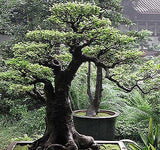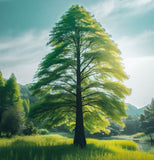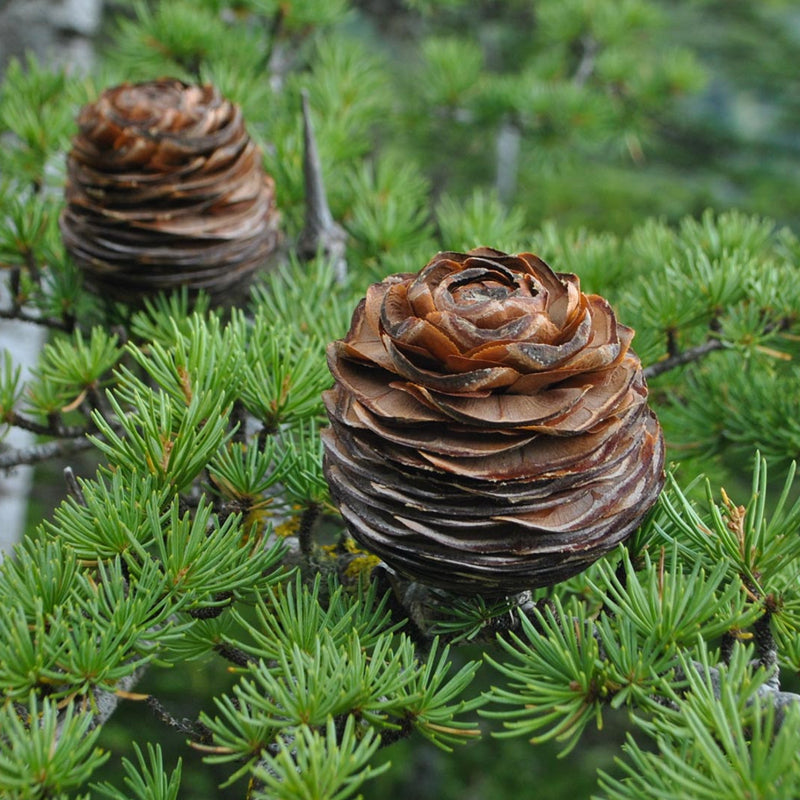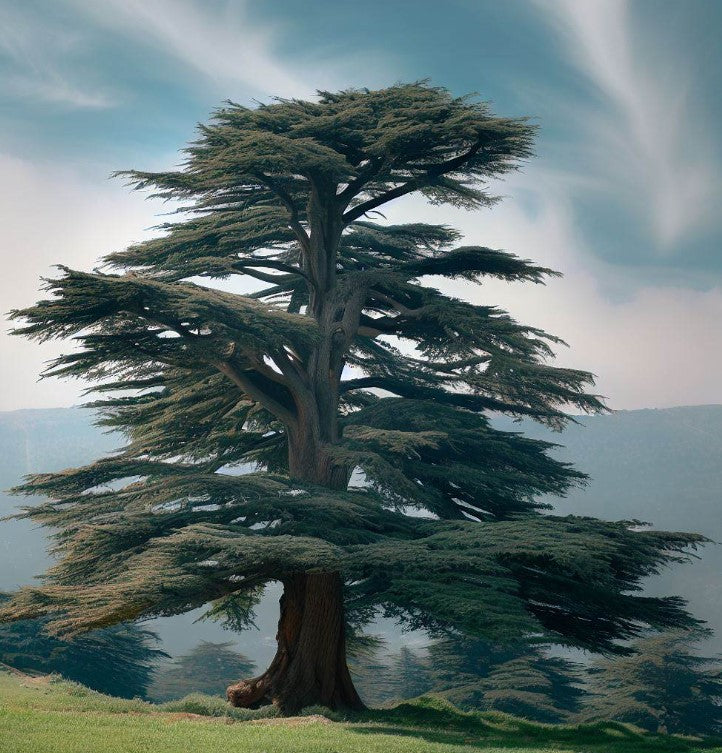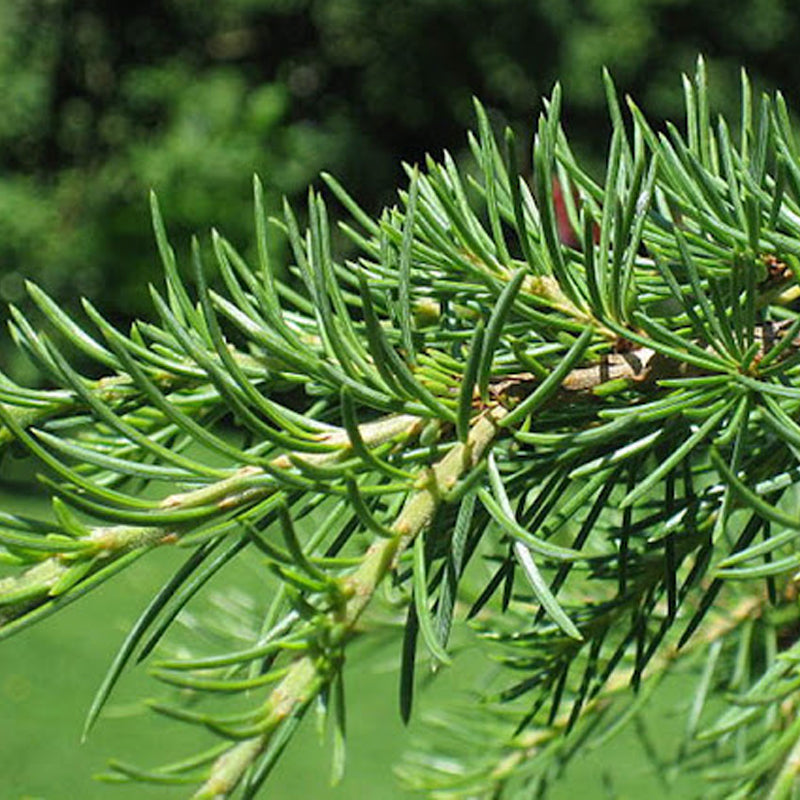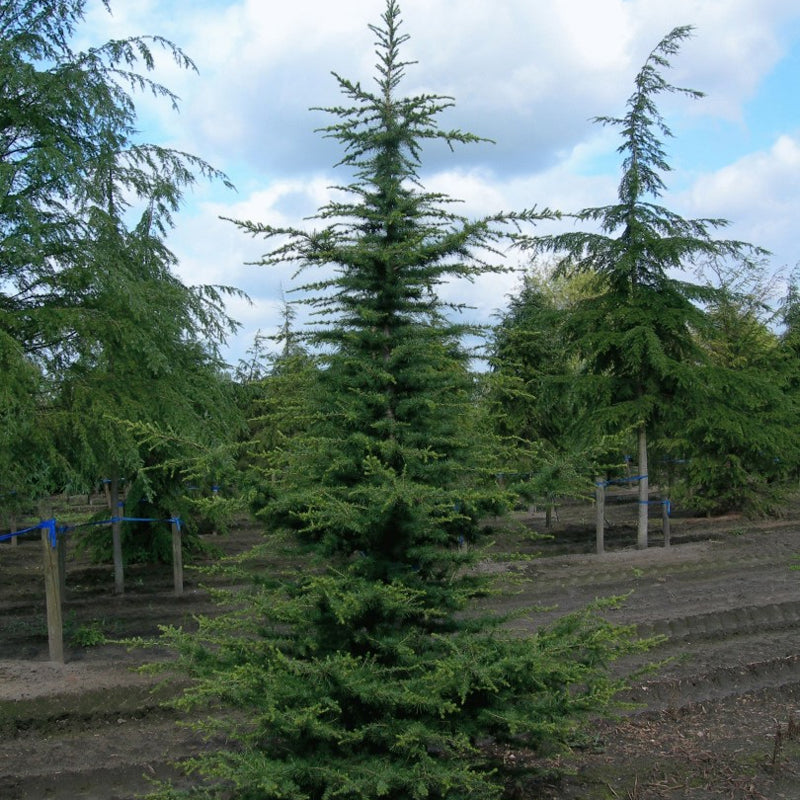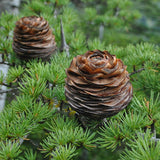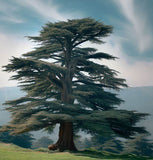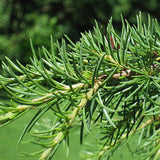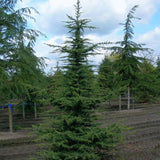Cedrus libani (Lebanon Cedar)
Cedrus libani (Lebanon Cedar) is a large evergreen coniferous tree native to the mountains of the Eastern Mediterranean region. The Lebanon Cedar is a majestic tree with a pyramidal shape and a straight trunk. It can grow to a height of 40 to 70 feet (12 to 21 meters), and in some exceptional cases, even taller. The tree has dense branches that spread horizontally, and the crown becomes more open and flattened with age. The leaves are needle-like and arranged in tufts, with a dark green color.
Bark: The bark of the Lebanon Cedar is thick, rough, and grayish-brown in color. As the tree ages, the bark develops deep furrows and becomes more fissured.
Cones: The Lebanon Cedar produces upright cones that are cylindrical in shape and can grow to about 3 to 4 inches (7 to 10 centimeters) in length. The cones start out green and turn brown as they mature. Each cone contains numerous woody scales that protect the seeds.
Habitat and Range: The Lebanon Cedar is native to the mountains of Lebanon, Syria, and Turkey. It thrives in high-altitude regions with well-drained soil and a Mediterranean climate. The tree is known for its ability to withstand harsh weather conditions, including extreme temperatures and strong winds.
Cultural Significance: The Lebanon Cedar has a rich cultural and historical significance. It has been highly prized for its timber and has been used for various purposes for thousands of years. The wood is known for its durability and resistance to decay, making it ideal for construction, furniture, and shipbuilding. The Lebanon Cedar is also a symbol of strength, beauty, and longevity and has been featured in ancient myths, religious texts, and national emblems.
Conservation Status: The Lebanon Cedar is considered a vulnerable species due to centuries of overexploitation for its timber. However, conservation efforts have been made to protect and preserve existing populations. The tree is now cultivated in many parts of the world as an ornamental tree and for reforestation purposes.
Environmental Importance: The Lebanon Cedar plays a crucial role in the ecosystem of its native habitat. It provides habitat for various bird species, including the endangered Cedar Waxwing. The tree's dense foliage helps reduce soil erosion on steep mountain slopes, and its deep root system helps stabilize the soil. It also contributes to the overall biodiversity of the region.
Botanical Name : Cedrus libani
Common Name : Lebanon Cedar
Height : 40- 100 ft
Spread : 40- 80 ft
Germination Info : Seed does not require a pre-treatment
Hardiness zone : 6-9
Average seed per ounce : Approx. 444

